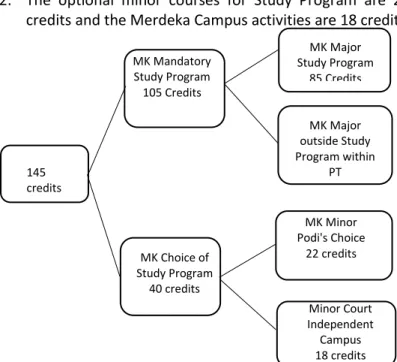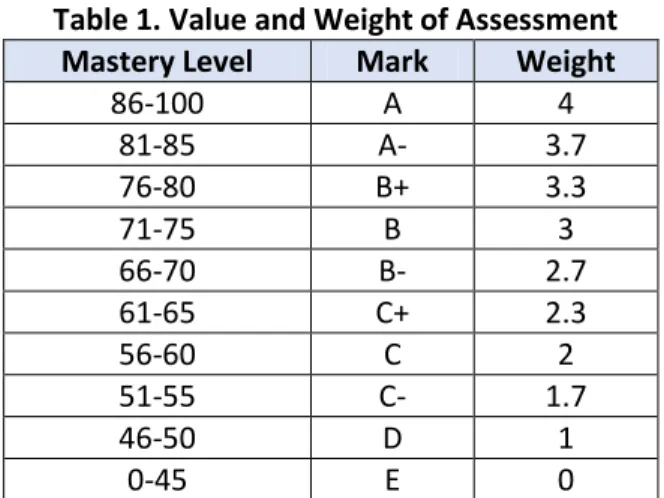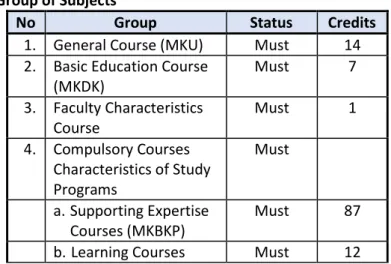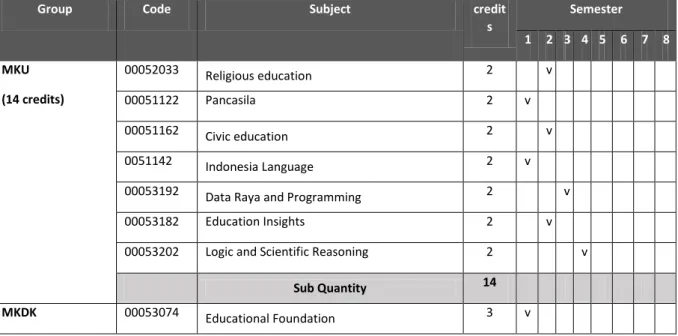HISTORY AND IDENTITY
INTRODUCTION
HISTORY
This dualism is believed to be less effective and interferes with the management of teacher education. To overcome this, the BI and B-II courses in Jakarta were integrated into the FKIP at the University of Indonesia. One of the points of the presidential decree is that this decree has been in force since May 16, 1964, which was later declared as the birthday of Jakarta IKIP.
IKIP Jakarta changed to Universitas Negeri Jakarta (UNJ) from 4 August 1999 by Presidential Decree 093/1999 dated 4 August 1999 and was inaugurated by the President of the Republic of Indonesia on 31 August 1999 at the State Palace.
VISION, MISSION, AND GOALS
Establishing a brand identity as a university that leads in human resource development in the field of transformative education in Asia. Achieving excellence in institutions and programs of study with international standards in development and services through science, technology and art that educates and advances the nation's civilization by enhancing human resource capacity. Building an academic infrastructure and culture that leads to the development of science, art and technology towards a distinguished university in Asia.
The realization of the development of bureaucratic, financial and human management that is transparent, responsible, accountable, independent and fair.
MOTTO
ORGANIZATIONAL STRUCTURE BASED ON
FUNCTIONS AND COMPETENCE OF GRADUATES
- IDENTITY
Application of logical, critical, systematic and innovative thinking in the context of the development or implementation of science and technology that pays attention to and applies human values in accordance with their field, based on scientific principles, procedures and ethics in order to produce solutions, ideas, designs or art criticism, as well as the compilation of a scientific description of the results of the study in the form of a dissertation; by demonstrating independent, quality and measurable performance, and documenting, storing, securing and retrieving data to ensure validity and prevent plagiarism. Perform a leadership role characterized by strategic and professional decision-making skills in making appropriate decisions based on the results of analysis of information and data in the context of solving problems in their area of expertise, responsible for the achievement of organizational work results, as well as to supervise and evaluate the completion of the work for which they are responsible. Carry out academic validation or studies according to their field in solving problems in society or relevant industries based on logical, critical, systematic and creative thinking through scientific research, creation of designs or works of art, through the development of their knowledge and expertise; compile scientific conceptions and the results of their studies using scientific principles, procedures and ethics in the form of a dissertation, and publish articles in accredited scientific journals at the national level and gain international recognition in the form of scientific presentations or the equivalent.
Identify the scientific field that is the object of research and position it in a research map developed through an interdisciplinary or multidisciplinary approach to make decisions in the context of solving problems in the development of science and technology that pays attention to humanities values and apply them on the basis of analytical or experimental studies.
SYMBOL
COLORS OF UNIVERSITY, FACULTY AND
HYMNE AND MARS UNJ
TOGA FORM
- INSTITUTIONS, BUREAUS AND SERVICE UNITS
INSTITUTION
- Institute for Research and Community Service
- Institute for Educational Development and
BUREAU
- Bureau of Academic Administration, Student
- Bureau of Public Administration and
- Financial Bureau
- Business Management Agency
TECHNICAL IMPLEMENTATION UNIT
- Quality Assurance Unit (SPM)
- Internal Supervisory Unit (SPI)
- Admission Office
TECHNICAL IMPLEMENTATION UNIT
- UPT Information and Communication (UPT TIK)
- UPT Library
- UPT Counseling Guidance
- UPT Language Service
- Public Relations and Public Information Office
- Office of International Affairs
- BPS Labschool UNJ
ACADEMIC POLICY
ACADEMIC POLICY BASIC
PHILOSOPHICAL HISTORICAL BASIS
The second transformation took place on August 4, 1999 with the change of the Jakarta Education Teacher Training Institute (IKIP Jakarta) to UNJ based on Presidential Decree No. Differences that often cause tension and unrest are cultural and religious differences, so multiculturalism is an inseparable part of the tridharma planning to create individuals who can accept differences as a necessity and wealth, not a threat. A pair of eagle wings, each consisting of five pieces, represents the strong spirit of Pancasila that underpins the attitudes and actions of the academic community and UNJ teaching staff to play a role in achieving national development goals.
The five petals of the blooming lotus flower signify the nobility of UNJ's academics and educational staff in serving the interests of the nation and the state, based on Pancasila and oriented toward the future.
SOCIOLOGICAL BASIS
UNJ as a higher education institution located in the center of the Indonesian capital is very close to multiculturalism born of multi-ethnic and religious conditions, so it requires a system of academic values and norms that can protect these differences and diversity. To ensure that the system of academic values and norms runs as expected, UNJ establishes a vision, mission, goals, motto and core values that become the reference for the implementation of tridharma. To support the achievement of the goals, the implementation of the vision and the realization of the mission above, UNJ carries out the basic values to organize Tridharma tertiary education activities at UNJ, which include: truth and wisdom, academic integrity, democracy and humanity, diversity and equality, for the benefit of humanity and sustainable.
These basic values are translated into IKHLAS energy which must become a work culture in the execution of the tridharma.
JURIDICAL BASIS
FUNCTION AND PURPOSE
- ACADEMIC POLICY
Realizing the implementation of quality Tridharma activities to achieve the vision, mission and goals of UNJ;. Realizing the creation of an academic atmosphere that ensures the freedom of the academic pulpit in the practice of tridharma, which is responsible and contributes to the benefit of the people;.
EDUCATION
The implementation of education at UNJ must at least meet the elements defined in the National Standards of Higher Education (SNPT), and have characteristics that are developed based on the values of the University, and the characteristics of the Study Program. The implementation of education in UNJ should also refer to the Internal Quality Assurance System (SPMI) which is a cycle of Determination/Planning of the Implementation of the Improvement Control Evaluation (PPEPP) accompanied by evidence of the implementation of the PPEPP; . The academic calendar is prepared every academic year and accommodates the implementation of the intermediate semester;
Implementation of curricula, in terms of the learning process at UNJ, must refer to the national standards for higher education (SN Dikti), SPMI quality standards and international standards related to the learning process.
STUDY
The University plans and directs a research roadmap that aims to fulfill the interests of the community, has a global perspective and can be carried out individually, in groups or in institutions;. The University develops an adequate remuneration system for all academics to encourage the creation of a favorable research environment. The University plans and guides the research that aims to meet the interests of the progress of science and technology, the needs of the community, with a global perspective, and can be carried out individually, in groups or in institutions;.
The University develops an adequate reward system for all academics to encourage the creation of a conducive research environment.
COMMUNITY DEDICATION
Community service as part of the tridharma of higher education is implemented in a balanced, sustainable and integrated manner with education and research. Community service is intended to be based on research developed according to UNJ's research roadmap. Community service is part of UNJ's academic community's active participation in national development.
Institutions providing community service work with government, private and community institutions on the principles of equality and independence;
HUMAN RESOURCES
- ACADEMIC ETHICS
The university is responsible for increasing the number of professors by at least 10% of the number of teachers at the university. The university ensures the availability of facilities and infrastructure for faculty and teaching staff to support the implementation of the tridharma. The university awards or sanctions teachers and teaching staff based on job performance.
The university is responsible for annually increasing the number of indexed publications by at least 50% of the number of lecturers;
ACADEMIC INTEGRITY
The values of academic integrity in tridharma activities in higher education are implemented to ensure academic quality and avoid academic violations. Therefore, the university is committed to ensuring that every teacher and student adheres to academic ethics. Academic ethics, which is also mentioned in the UNJ statutes, is a guide of conduct for the academic community in the performance of the tridharma of higher education.
Academic ethics that must be understood and become a concern for all activities of the academic community at UNJ include:
ACADEMIC VIOLATIONS
- COOPERATION
34;using sources of ideas, opinions, views, data and/or theories without stating the source of their own or other people's work in accordance with references and/or citations in scientific writing.". 34;to in your formulating one's own words from the source of the sentence, data or theory without citing the source of one's own work or that of others in accordance with references and/or quotations in scientific writing 34; translating writings from a source own or other people's work in whole or in part which is recognized as a scientific work.
Multiple submission is the act of submitting the same scientific work that is published in more than one journal and/or publisher.
PURPOSE OF COOPERATION
COOPERATION PARTNER
FORM OF COOPERATION
This course aims: Students can use English correctly and correctly in mathematics. This course aims to enable students to conduct research in mathematics education. This course aims to enable students to understand philosophy of science, philosophy of mathematics and philosophy of science.
Beginning researchers who are able to conduct research based on research methodologies in the field of chemistry education.
TERMS OF COOPERATION
FINANCIAL MANAGEMENT
This course aims to make students understand the forms of Differential Equations (PD), how to solve them and be able to apply them to real problems. Able to design, implement and evaluate entrepreneurial activities in the field of biology and biological education based on digital technology. 3 Entrepreneur Able to design, implement and evaluate entrepreneurial activities in the field of biology and biological education based on digital technology.
Able to analyze and generate ideas for entrepreneurial activities in biology and biology education.
QUALITY ASSURANCE COOPERATION
ACADEMIC RULES
ACADEMIC OPERATIONAL GUIDE
So that the goals of the curriculum for the Mathematics Education Study Program for FMIPA UNJ are achieved. This course aims to make students understand the meaning of language, logical principles and quantities and be able to formulate mental deductions and express their thoughts mathematically. This course aims for the students to be able to independently discuss a mathematical topic as a basis and elaboration of lecture material and write it down in the form of a seminar assignment.
This course aims to provide students with knowledge and understanding of the design, manufacture and use of mathematics teaching aids in the form of hardware or software. This course aims to enable students to be able to use regression analysis as a quantitative analysis method necessary to study real problems and make decisions about these problems. This course aims to provide students with knowledge and understanding of the mathematics education curriculum in lower secondary schools.
In addition, graduates of the Physics Education program can also continue their studies up to Master's level in the field of Physics or Physics Education. Bachelor of Physics Education who is able to conduct physics educational research in the form of tests and. Able to make appropriate decisions in the context of solving problems in their field, based on the results of information and data analysis.
This course aims to make students more understanding and skilled in the synthesis of complex compounds and their characterization. This course aims to enable students to prepare a pedagogical research report and be able to defend it in a specific assessment forum. Students are expected to be able to identify and overcome misconceptions and understand the material and material characteristics.
This course provides information on the use of scientific writing within the chemistry program Ethnopedagogy (2 credit points). This course aims to enable students to prepare an educational research proposal and be able to defend it in a specific assessment forum. Be able to apply biology teachers' competence based on technological pedagogical content knowledge (TPACK).

GUIDELINES FOR THE FACULTY OF
MATHEMATIC EDUCATION S1 STUDY PROGRAM
PHYSICS EDUCATION S1 STUDY PROGRAM
CHEMISTRY EDUCATION S1 STUDY PROGRAM
BIOLOGY EDUCATION S1 STUDY PROGRAM
MATHEMATIC S1 STUDY PROGRAM
PHYSICS S1 STUDY PROGRAM
CHEMISTRY S1 STUDY PROGRAM
BIOLOGY S1 STUDY PROGRAM
- S1 COMPUTER SCIENCE STUDY PROGRAM
STUDY PROGRAM S1 STATISTICS
MATHEMATIC EDUCATION S2 STUDY PROGRAM
PHYSICS EDUCATION S2 STUDY PROGRAM
CHEMISTRY EDUCATION S2 STUDY PROGRAM
BIOLOGY EDUCATION S2 STUDY PROGRAM


